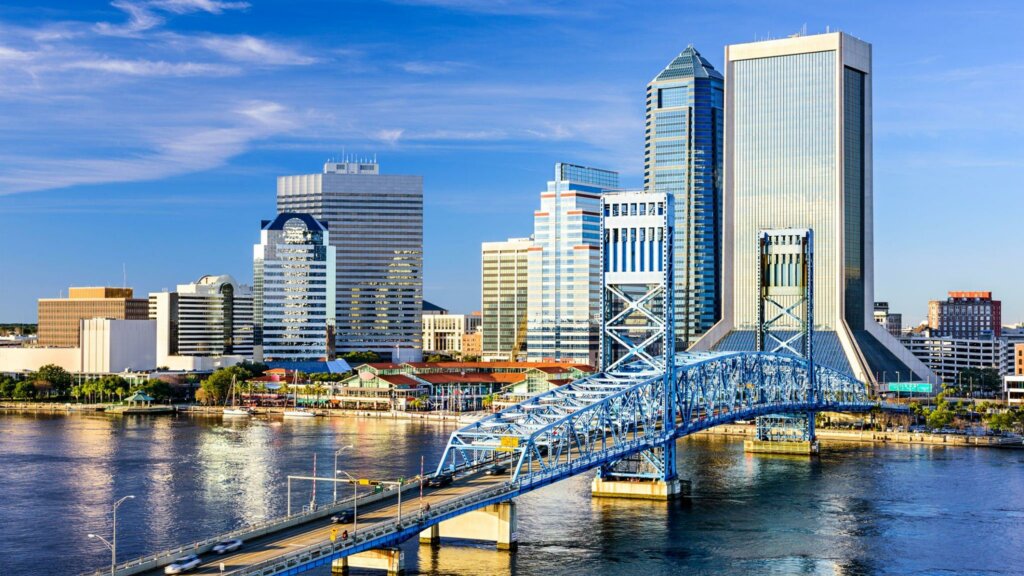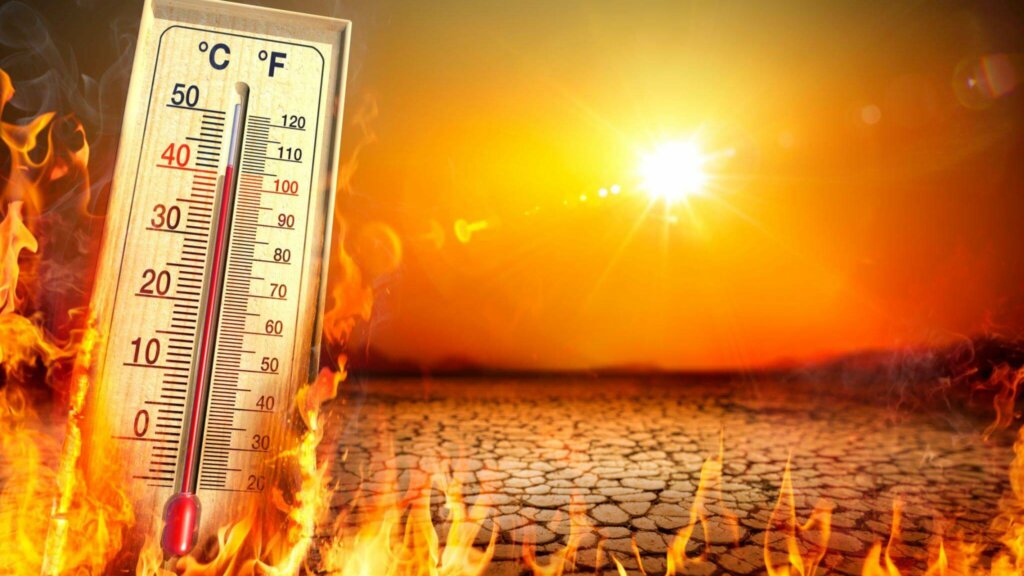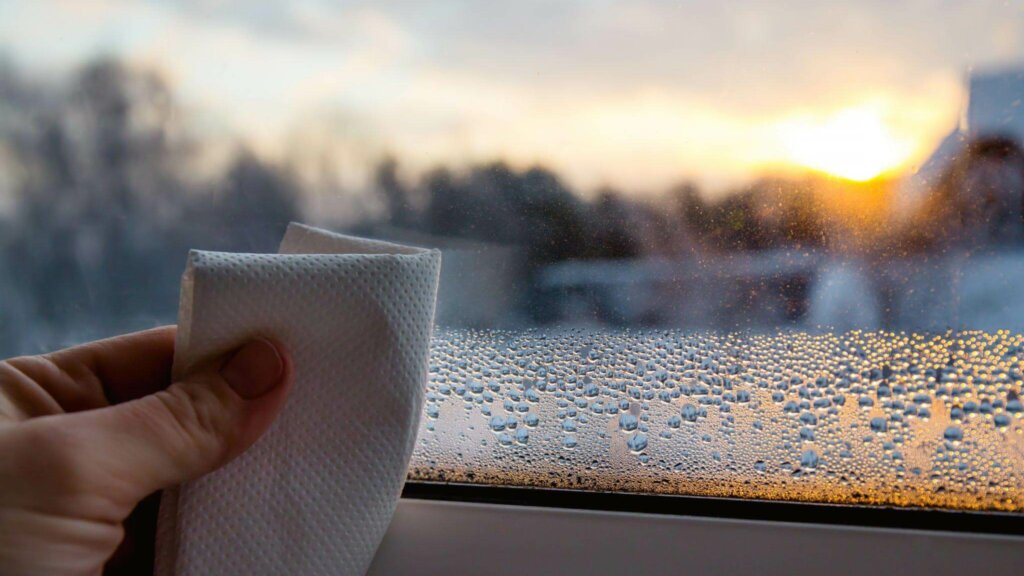Snowfall is exceptionally unusual in the southern and central parts of the U.S. state of Florida. Most large cities in Florida have never witnessed appreciable snowfall. Florida’s sunny climate, beautiful beaches, lack of state income tax, and low house prices have made it a desirable destination for people to move to Florida and call their home.
Jacksonville is one of the nicest places to live in Florida since it has a suburban atmosphere. North Florida and the Jacksonville area saw the lion’s share of Florida’s snowfall. Record snowfall in Jacksonville was 1.9 inches on February 12, 1899, per the National Weather Service. On average, 113 days out of the year, Jacksonville has some form of precipitation.
Is there a chill in the air in Jacksonville? Does it snow in Jacksonville? What is the weather condition in Florida year around? These are a few such questions that might be hitting your mind, whose answers we will be providing you in detail in the article below. So, read on!

What is the coldest month in Jacksonville FL?
The coldest month in Jacksonville FL is January, which receives a daily average high temperature of less than 70°F. Residents in Jacksonville experience the highest average temperature of 17.3°c and a lowest average temperature of 8.8°c. The winter season remains for nearly three months, starting from December to February.
How often does it freeze in Jacksonville Florida?
The climate in Jacksonville Florida remains freezy only for four to five days in a year, any day from December to March. Winters in Jacksonville FL are usually lenient, beautiful, and sunny. The average high temperature in these months ranges in the 60s and average low ones reduce down to the mid-40s. Snow in Jacksonville, FL is rare and the temperature rarely dips down below freezing. Usually, temperatures below 30 degrees or lower are termed freezing in Jacksonville, FL. This year’s freezy day happened on 30 Jan 2022.
[elementor-template id=”13247″]
Weather in Florida
The residents of Florida experience a wet and dry season throughout the entire year. From May to October, i.e. the wet season, the state gets a high range of humidity along with thunderstorms almost every day.
Sometimes, the weather conditions increase the chance of hurricanes and thunderstorms, mostly from August to October. On the other hand, during the dry season, Florida experiences low amounts of humidity and bright skies, from November to April. Though the chances of rainfall are notably less during that time, wildfires might occur, but not happen frequently.
Averages Climates by Month
The latitude and longitude of Jacksonville place it squarely in the tropics. Here in the Northern Hemisphere, summer officially begins around the close of June and continues through the middle of September. When it comes to relative humidity, August is the worst month. If you’re looking for a dry month, look no further than April. Let’s acquire a complete idea of average climates by month before deciding whether Jacksonville is a good place to live or not!
Highest Temperature Months
From May 21 to September 20 there is a hot season with an average daily high temperature of over 85°F. The following 4 months are the highest temperature months in Jacksonville, Florida.

- May, which is the final month of spring, is also a moderately hot month in Jacksonville, Florida, with an average temperature that ranges from a maximum of 29.7°C to a minimum of 20°C. The average high temperature in May rises slightly from a still warm 29.7°C in April, which was a reasonably hot 26.7°C.
- In Jacksonville, Florida, June, is the first month of summer. It is a tropical month with average temperatures that range from 23.3°C to 32.3°C. The average maximum temperature in Jacksonville in June is a scorching 32.3°C, which is almost the same as in May.
- Jacksonville, Florida has sweltering summer heat in both June and July, with average lows of 24.4°C and highs of 33°C. The two warmest months, with average highs of 33°C, are July and August. The average July heat index is calculated to be a deadly hot 45.3°C.
- The final month of summer in Jacksonville is August, which is another hot month with an average temperature that ranges from 24.8°C to 33°C. The two warmest months, with average highs of 33°C, are July and August. The average heat index in August is measured at a scorching 45.7°C.
[elementor-template id=”13257″]
Extreme Hot Days
You might be wondering, for example, when the temperature in Jacksonville last rise above 101 °F. What was Jacksonville’s record high temperature a century ago? On June 19, 1998, July 11, 1879, and July 28, 1872, the greatest temperatures recorded during that time were 40°C.
Usually, Jacksonville experiences its hottest month in July, with an average high temperature of 91.1°, which is about normal for Florida. There are five pleasant months in Jacksonville, with highs between 70 and 85 degrees.
Lowest Temperature Months
From December 1 to February 27, the chilly season starts, which has an average daily high temperature below 21.1°C, which lasts for about 2.9 months. Jacksonville experiences its coldest month of the year in January, with an average low of 7.8°C and a high of 18.4°C.

- Jacksonville’s first winter month of December is likewise a pleasant one, with an average high temperature of 19.7°C and a low temperature of 11.5°C. The average high temperature in December is a comfortable 19.7°C, almost the same as in November.
- In Jacksonville, Florida, January is another pleasant winter month, with an average temperature that ranges from 8.8°C to 17.3°C. With an average high temperature of 17.3°C, January is the coldest month.
- With an average temperature ranging from 19.7°C to 10.8°C, February, the last month of the winter in Jacksonville, is also pleasant. The average high temperature in February is roughly the same as in January: a still pleasant 19.7°C.
Extreme Cold Days
On February 8, 1835, Jacksonville, Florida experienced its coldest temperature on record, which was -13.3°C. Rarely a winter goes by without experiencing a temperature below freezing. Cold waves, which are periods of extreme cold, often endure two days before giving way to temperatures closer to normal. On average, Jacksonville has had snow once every seven years. The first week of November on average marks the first frost of the year and the third week of March is the last.
Jacksonville experiences its coldest month of the year in January, with an average low of 7.8°C and a high of 18.4°C. Jacksonville gets 9.2 nights a year when the low temperature is below freezing, which is more than most other Florida cities. Jacksonville experiences approximately 0 nights a year where the low temperature is below zero degrees, which is about average compared to other Florida cities.
[elementor-template id=”13242″]
Humidity Months
Jacksonville’s humidity can be uncomfortable for much of the year, but it can also be unbearable in the summer. In August and July, the humidity in this area has been described as oppressive. The most comfortable months are November through April, and the humid season lasts from May through October.

Snow Fall Month
Jacksonville is one of the snowiest places in Florida with an average annual snowfall of 0.1 inches. With 0.1 inches of snow, December is the snowiest month in Jacksonville, and no other months have considerable snowfall. The Jacksonville region and northern Florida saw the great bulk of Florida’s snowfall events. The National Weather Service reports that 1.9 inches (4.8 cm) of snow fell in Jacksonville Florida on February 12, 1899, setting a record for the city.
Does it snow in Jacksonville Florida FAQ’s
Why does it rain so much in Jacksonville?
The reason behind Jacksonville getting more rainfall is because the water (the Gulf and the Atlantic) present around the state is the warmest and the tropical systems. The heat in the summers gets moderated by more rainfall because the warmer air holds more moisture, resulting in rainfall more often.
What do people wear in Jacksonville in February?
People in Jacksonville wear shorts, t-shirts, sandals, swimming suits, and sundresses in February but also carry jackets and sweaters to protect themselves from chilly nights.
Does it rain a lot in Jacksonville Florida?
Jacksonville receives an average precipitation of 50 inches per year. It is higher than the US average i.e. 38 inches of precipitation per year. September is the moistest month getting 7.5 inches of rainfall every year.
Conclusion
More than 840 square miles make up Jacksonville and it is one of the biggest cities in Florida by landmass in the Continental or the contiguous USA. It has a humid subtropical climate, which has hot, wet summers and moderates to mild and dry winters. An average of 50 inches of rain falls each year in Jacksonville, Florida. There are about 221 bright days per year. Rain, snow, sleet, or hail falls on the ground and is generally referred to as precipitation. But, the city never ever experience frequent snowfall every year.
For those who are moving to Florida and are taking a step back to think does it snow in Florida? Will we face trouble while making a move to the city because of snow? Now might feel relaxed after reading this article. So, without any second thoughts, make a safe move to the sunshine state and most importantly think about how to become a Florida resident after settling down there.
[elementor-template id=”13252″]